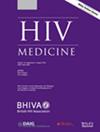The first AI-based Chatbot to promote HIV self-management: A mixed methods usability study
Abstract
Background
We developed MARVIN, an artificial intelligence (AI)-based chatbot that provides 24/7 expert-validated information on self-management-related topics for people with HIV. This study assessed (1) the feasibility of using MARVIN, (2) its usability and acceptability, and (3) four usability subconstructs (perceived ease of use, perceived usefulness, attitude towards use, and behavioural intention to use).
Methods
In a mixed-methods study conducted at the McGill University Health Centre, enrolled participants were asked to have 20 conversations within 3 weeks with MARVIN on predetermined topics and to complete a usability questionnaire. Feasibility, usability, acceptability, and usability subconstructs were examined against predetermined success thresholds. Qualitatively, randomly selected participants were invited to semi-structured focus groups/interviews to discuss their experiences with MARVIN. Barriers and facilitators were identified according to the four usability subconstructs.
Results
From March 2021 to April 2022, 28 participants were surveyed after a 3-week testing period, and nine were interviewed. Study retention was 70% (28/40). Mean usability exceeded the threshold (69.9/68), whereas mean acceptability was very close to target (23.8/24). Ratings of attitude towards MARVIN's use were positive (+14%), with the remaining subconstructs exceeding the target (5/7). Facilitators included MARVIN's reliable and useful real-time information support, its easy accessibility, provision of convivial conversations, confidentiality, and perception as being emotionally safe. However, MARVIN's limited comprehension and the use of Facebook as an implementation platform were identified as barriers, along with the need for more conversation topics and new features (e.g., memorization).
Conclusions
The study demonstrated MARVIN's global usability. Our findings show its potential for HIV self-management and provide direction for further development.


 求助内容:
求助内容: 应助结果提醒方式:
应助结果提醒方式:


